Environmental Consulting Careers: The Good, the Bad and the Ugly
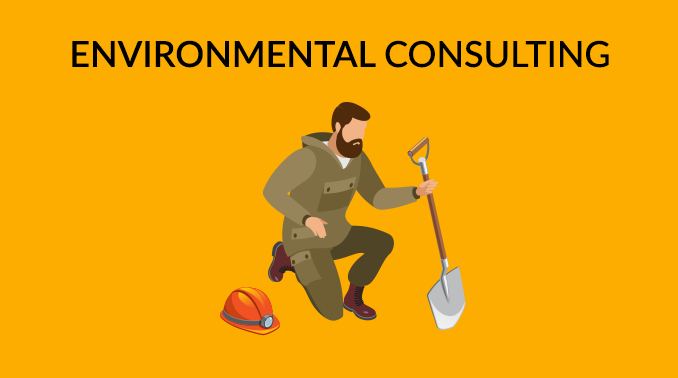
Environmental Consulting Career
Trying to find an environmental science career? One path is as an environmental consultant.
It isn’t something you can just do at the drop of a hat.
In fact, there are really a couple of things you MUST know before you sign the dotted line.
Let’s pull back the curtain and reveal some of the hidden secrets (good and bad) of environmental consulting.
What are the 7 things you need to know before entering environmental consulting? Ready?
1. The Good: A balance of field and office work

Entry-level consultants do most of the fieldwork. Your fieldwork ratio depends on the season, location, and background.
Working in the field gives you a chance to bring physicality and fitness to your work. And when you spend time outside, you can bank vacation time or receive overtime pay.
As you start climbing the career ladder, you often do more office work. At a certain point, you become too much of a risk to get hurt, unless you are coordinating the field effort.
So as you do more desk work you either are landing projects for the company or you develop a skill set that keeps you in the office more.
After all, fieldwork can be really expensive and can be physically demanding. Therefore, the older you are, the higher your hourly rate is, and the less physical ability you will have on-site.
2. The Bad: It isn’t for the faint of heart
Environmental consultancy is not for everyone. But the rewards can be bountiful. As an environmental consultant, you will ensure clients comply with regulations.
For example, are they complying with air regulations, managing wastewater, and disposal of solid wastes? Alternatively, are clients harming wetlands or hurting endangered animals, birds, insects, or fauna?
Overall, the main purpose of environmental consultants is that they provide guidance relating to managing environmental risks to human health and the environment.
As such, environmental consultants come from a variety of backgrounds. For example, environmental consultants are hydrogeologists, ecologists, anthropologists, civil engineers, etc.
3. The Ugly: You bill your time to projects

In consultancy, the first thing you have to understand is that your time is billable. On top of that, you often work with limited budgets managing your time and your client’s time as efficiently as possible.
As a consultant, your job is to get your clients out of trouble and save them money. For example, when a client has a contaminated site, they hire you to assess, clean them up, and report on it.
The budget is allocated for each task that you have to work on. If you aren’t able to bill your time in 15-minute increments, you don’t have a job.
However, if you take a full-time position with a company doing lots of fieldwork you usually have lots of billable hours since you’re always in the field.
Nothing to bill to? Well, you can bank the hours and take leave without pay when work gets slow. It’s completely dependent on how many billable hours the company has.
4. Work for the government if you don’t want time cards
Considering everything, studies have shown that private sector employees are more satisfied with their jobs. For example, opportunities for training, direct supervision, and cooperation are some of the stand-outs in the private sector.
But if you don’t like billing out your time, work for the government. For instance, some government organizations have time cards in place. But when you compare time allocation and budgeting, the government often has more flexibility.
Because there are often existing standards to follow, you can accomplish your goal. These protocols that are already in place make your time and job more manageable.
5. “Making a difference” isn’t in your job description
After graduation, you’ll probably want to land a job where you can make a positive difference in the environment. The startling truth is that “making a difference” is not the job description of an environmental consultant.
Your very existence impacts the environment by documenting local conditions prior to human impacts, evaluating human impacts, or cleaning up human impacts.
You are a scientist or engineer collecting data, developing a solution, and writing reports. You enforce environmental regulations. There are rare opportunities for you to change the world.
6. Your clients are everyone

Environmental science is a broad field with a range of career paths and possibilities.
Environmental consultancy is the industry that provides advice relating to managing environmental risks to human health and the environment. As such, environmental consultants come from a variety of backgrounds: hydrogeology, environmental science, environmental health, civil engineering, etc.
There aren’t always well-defined boundaries between environmental consultants, biologists or geologists who are working in this area. Your clients are everyone – gasoline service stands, mining start-ups, construction, manufacturing, energy, and gas.
Instead of doing the environmental inspections yourself, the government points out their deficiencies. As such, this will put environmental companies on the correct path to compliance.
7. What environmental consultants eat for breakfast
Here are more pro tips for environmental consultants.
- Learn GIS or CAD and a programming language (Python, R and VBA are useful).
- Learn about databases and how to work within them.
- Understand corporate dynamics before you make serious, life-changing decisions.
- Statistics is often a good complementary skill for reporting and establishing sample size.
- If you want to move up the ladder fast, get a master’s degree.
Environmental Consulting Careers
These are just my tips and opinions for environmental consulting careers. But everyone has their own opinion on the matter.
For instance, a lot of my friends still happily work in consulting and don’t mind the culture.
Do you have any tips for obtaining an environmental science career? Do you work in environmental consulting and have a different opinion? Let us know with a comment below.


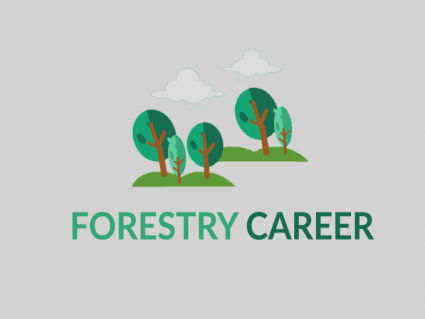
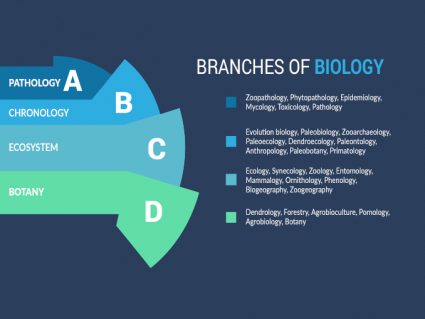
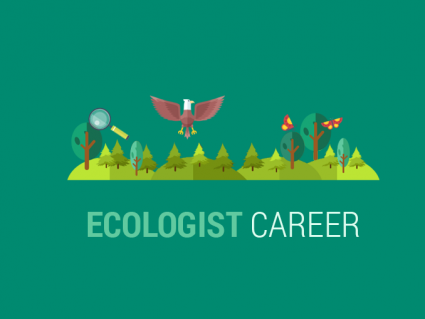
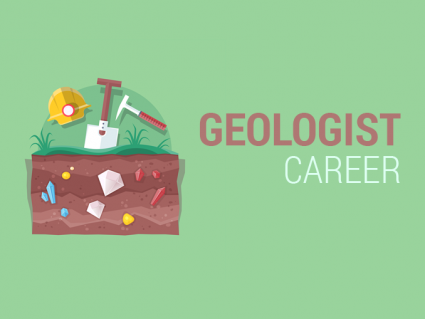

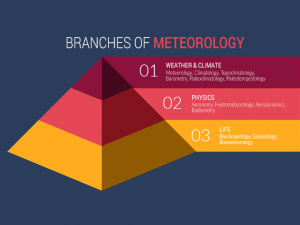




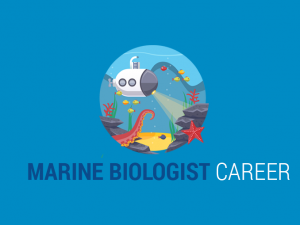


Dreadful industry. I would not recommend it to anyone. As others have mentioned, long stressful hours, the constant threat of layoffs, boring and repetitive, limited career development options and poor pay and dismal work life balance. You can work on a factory floor, make more money, be less stressed. The junior staff are pulled in, ground up and spit out. It is a horrible life style. They work so hard with the tease of moving up, making more money, becoming a share holder etc. but when it comes down to it those things rarely come to fruition.
Management is generally made of scientist who have moved up into management after many years of grinding it out. They have zero experience managing people and I have seen them destroy careers either by accident or to save their own on many occasions. Mentorship is nonexistent in most cases.
I could go on. It is an awful, greasy field, avoid it if possible. I would never recommend it to anyone.
After 20 years in the field I am finally out and have not been this happy in 20 years. I knew I wasn’t happy, but I now realize I, along with a majority of the staff are/were miserable but thought this is what work was all about. It’s not. There are many better options.
I feel for you.
…and I can definitely relate. My company did pay me overtime (or flextime). I just preferred the flextime because I didn’t like the job.
One of my major mistakes was that I should’ve read the contract better before signing. During the interview, they said the office closed down during Christmas (it sounded like paid holidays) and I would get extra day offs throughout the year. What they meant by that was that I was forced to use my vacation time because the office was actually closed! That sucked because I preferred using vacation time during the summer.
After signing… When I compared with my co-workers, they had at least 10 extra vacation days compared to me. That was my mistake, for not negotiating better.
…But for anyone going into consulting, make sure to negotiate before. Get everything in writing. Environment consulting companies will work to the bone.
I got roped into environmental consulting because the company asked for a “geologist”. They didn’t mention consulting, didn’t mention the fact I can’t get overtime pay, and in the months I have done this job I haven’t done any geology but a ton of mechanical work and trying to understand engineering.
I’m only a few months into this field and hate it. While I have had blessing outside of work, the job itself is not at all what I was lead to believe and I despise it with every fiber of my being. The promise pay rate is not what I am getting, my take-home salary is less than a hundred dollars more per week than I was getting making sandwiches for a living with 10 times the stress, and the idea of providing more service for the customer and trying to rope more people in as customers for a service I don’t get and that I want out of is driving me up a wall. There is no benefit to me in this career beyond a paycheck, and that doesn’t cover the frustration nor provide much for the cost of living here.
Based on my experience as a consultant in North Carolina, acquire a geologist license or engineering license if want to excel in consulting. Otherwise, you may reach a ceiling that does not meet your goals and you cannot be in responsible charge of projects. It’s one reason I left consulting.
How to recruit good environmental consultants to Oman? Tax free pay plus perks. For qualified competent candidates, 5+ years consultancy experience?
I’m a bit late chiming in on this but I’m chiming in anyway!
I have worked for ~4.5 years in environmental consulting. Its been mostly fun as a young single British person moving to BC, Canada and adventuring and exploring amazing places and meeting lots of great people. It’s been great for getting experience and getting a foot into the industry.
However, the pay in consulting is low and private companies will often try to keep it that way so they can profit off your back. You have to put a lot of time in to get OT and I still have a big student loan and can’t afford to buy out here.
I then jumped to a government job. Steady work, not billing and substantially better pay and benefits.
I miss the adventure lifestyle and am grateful for those experiences but I like the public sector more for the stability and salary.
I would say that it’s good to start in consulting but move into the public sector when you can!
The traveling, working outside, writing reports, problem-solving, and constantly learning new things were all positive. The pay scales need to be fixed. Most construction tradespeople make way more money than environmental consultants.
I may have painted the industry a bit too ugly which is really my opinion. Some of my co-workers really enjoy being environmental consultants. Maybe, I could have added a few more positive points to environmental consulting such as the capability to easily get promoted and earn more than workers in the public sector.
I guess the major downside is in an economic recession, projects can get canceled and be out of work. (But public sector jobs can get cut too!) Even without a slow economy, companies can get outbid by competitors and find work shortages. I always suggest finding employment in larger environmental consulting. If there are work shortages, I’ve seen other states/provinces get called in to fill in for them. This can at least guarantee income.
Best of luck. Don’t give up on your dreams from just this article. It’s a great field to work in!
I am in my final year of University (studying a Bachelor of since, and majoring in zoology + ecology and conservation) and I am planning on getting an internship with an environmental consulting company and later becoming fully employed within the same company. Would anyone be able to provide me with any advice on how to proceed with my plans, as I am feeling a bit unsure about my future career after reading this article?
Thank you in Advance.
This article is on point!
As an environmental consultant with 8 years of experience, I find that I am exhausted from all the traveling, report-writing and making sure that I am always billable. I feel that it’s time for me to leave this field but I am not sure how to go about changing careers without facing serious financial consequences.
This field is good when one is starting but with time it gets exhausting and boring and yes, the remuneration is not worth the risks associated with being on the road all the time and away from family.
Great input. Thanks Chris
This is not a good field rocbr in. The pay is extremely poor, especially for field staff. Near minimum wage to start, AND you are required to have a Bachelors degree at minimum. You have to drive a lot, lots of traveling. What’s the point? Just work at a warehouse stocking shelves, less stressful and probably better pay.
Author is right about billable time. If your timesheet is majority non billable hours, you get let go. Simple as.
Its a cess pool of an industry, really. My advice to students is to avoid studying in this field and seek other options. You shouldn’t have to go to university just to do manual labor.
I found it interesting how you said that new consultants work in the field and can get a lot of vacation time from it. I always kind of felt bad for environmental consultants because they are going from place to place all the time. But if it means they get other benefits then I don’t mind much.